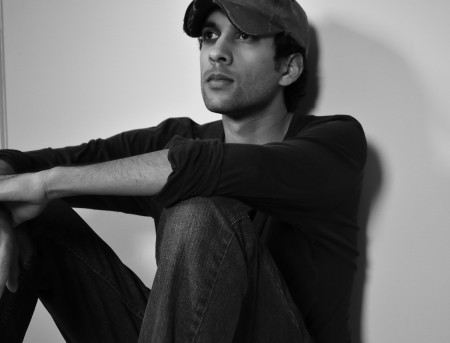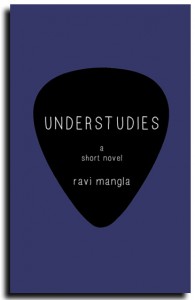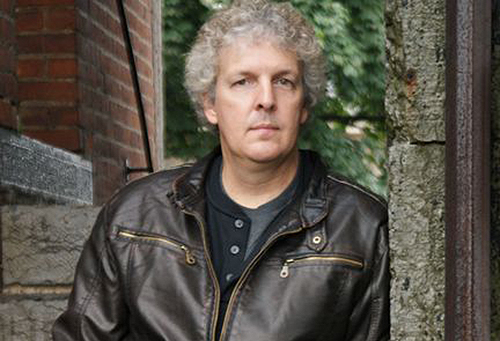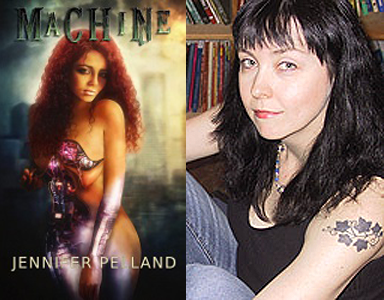Interview by Edward J. Rathke

RAVI MANGLA is the author of the novel Understudies (Outpost19, 2013). His work has appeared in Mid-American Review, American Short Fiction, The Rumpus, Corium Magazine, Gigantic, Wigleaf, and McSweeney’s Internet Tendency. Follow him on Twitter: @ravi_mangla.
 Edward J. Rathke: I love the structure of Understudies, because I feel that this is exactly how life is, or at least our memories of life. It’s not an infinite stream of consciousness, but a fragmented collection of moments colliding. How did you come to this structure for the novel?
Edward J. Rathke: I love the structure of Understudies, because I feel that this is exactly how life is, or at least our memories of life. It’s not an infinite stream of consciousness, but a fragmented collection of moments colliding. How did you come to this structure for the novel?
Ravi Mangla: The structure was originally used for editing. Revision doesn’t seem as daunting when a story is broken into bite-size pieces. Later I began experimenting with the structure more seriously and now it’s become something of a house style (quite a few of my stories are organized this way). The approach isn’t particularly novel. Plenty of folks employ it: Toussaint, Robison, Erickson, Coover, Didion, etc. (I read Jenny Offill’s Dept. of Speculation the other week, which utilizes the form to great effect.)
What I love most about the fragmented structure is that it allows me to maximize the potential of each page. I can get to the crux of the scene without wasting words on perfunctory transitions. The ordering process also presents an interesting challenge—trying to arrange the sections as to build some sort of rapport between them.
It could be said I worked as a purveyor of worldly knowledge, a molder of young minds, or so I might have imagined myself reciting in the right company (the breed of people who balanced glasses of brancy precariously at the ends of their fingers). It could also be said I supervised the next generation of disappointers in the intervening hours between bus rides.
EJR: The novel surprised me with how funny it is, especially because the humor isn’t based around gags or oneliners, but around situations, giving it a sitcom feeling. And I mean that in the best way possible, as it’s more Curb Your Enthusiasm than How I Met Your Mother. What comedians, films, actors, or writers influence your comedic writing?
RM: I wholeheartedly believe that the thousands of hours of Simpsons episodes I watched between 1993 and 2006 endowed me with a more comprehensive education than a decade-plus of formal schooling (this is back when Fox aired at least two reruns a day). Its anti-corporate message steered my political beliefs, and its willingness to acknowledge the paradoxical relationship between its anti-corporate leanings and News Corp lackey status introduced me to irony. (Oh, and the show also taught me how I might go about stopping a solar powered monorail with no brakes.) Other comedic interests, past and present: Arrested Development, the Comedy Bang Bang podcast, Todd Barry, Stella, Paul F. Tompkins, Louie, The Coens, The Far Side, Bill Murray, Saturday Night Live, Tig Notaro, Conan O’Brien, The Office, Jack Handey…
EJR: The Simpsons is definitely one of the greatest shows of all time. Any favorite episodes or quotes? How about characters? For some reason, I’ve always really loved Moe Szyslak.
RM: “The PTA Disbands.” I used to record episodes on VHS, and I’ve probably seen that one thirty or forty times. It’s not exactly part of the canon, but it’s an eminently quotable episode. As far as favorite character goes, I adore Kirk Van Houten. He’s the human embodiment of sadness.
EJR: What I find perhaps most impressive about this novel, is how it feels more like memoir than anything I’ve read recently. You create real authenticity here, making your characters come to life so fully, and especially in demonstrating how awkward it can be being human, and talking to other humans. You also balance love and tenderness with the humor and self-aware awkwardness of life. Tell me about the importance of character in relation to narrative and prose, or the intersection of these three things.
RM: I fear I don’t spend enough time thinking about character. Early on I wanted to craft stories like Antonioni, where characters amount to little more than elaborate set dressing, a function of setting, tools to explore a foreign landscape, but lately I find myself becoming more interested in the mechanics of character. With Understudies I tried to assign each character a quirk or habit of mine. It helped me to feel connected to them on a deeper level. In fact, I used way more personal material in this book than I’d planned or anticipated. Maybe that gave it the slightly memoir-ish vibe.
EJR: On Goodreads you said, ‘This is the book I always wanted to write.’ Mind saying a bit more about that?
RM: Okay, bear with me as I slog through this heavy-handed metaphor: If there was a dating service that matched people and books, and I was asked to stand in front of an unmanned camera and describe my ideal reading companion, I suspect Understudies would come pretty damn close to meeting the criteria. In other words, I wrote the kind of book I would want to read. That may not sound especially unusual, but it took me a while to reach a place where I felt capable of writing such a book (one that didn’t feel derivative or gimmicky or disposable). Every week or so I’ll take it off the bookshelf, just to make sure it still holds up, and I’ll end up getting pulled into the narrative—as a reader, not as the author—and making it through fifteen or twenty pages before I snap out of it and realize how absurdly narcissistic it is to be reading my own book months after publication.
(Worth noting: In this dating video scenario I have an immaculate perm.)
We don’t have the luxury of communities anymore; we have audiences. And the bigger the audience the better I felt.
EJR: The introduction of the famous actress leads to funny, awkward, and tender moments, but it also asks subtle questions about the commoditization of people. How do you think fame and celebrity has changed the way we view life and people?
RM: There’s a marked difference in the way we relate to fame and celebrity now as compared to, say, fifty years ago. During the golden age of cinema there was an “otherness” to celebrities. I always think about that last scene in Barton Fink when John Turturro asks the woman on the beach if she’s “in pictures” and she responds “Don’t be silly.” Celebrities may as well have been an entirely separate species. But, now, with the internet and reality television, fame feels real and tangible, perfectly within reach. This democratization of celebrity is both liberating and precarious, with many of us feeling that fame isn’t just an inevitability but an entitlement. We compare ourselves to celebrities more than ever before. We derive far too much pleasure from their misfortunes (see: schadenfreude). Why do writers spend so much time criticizing James Franco and Lena Dunham? Because—either unconsciously or consciously—we believe we’re more talented than they are, and more deserving of their fame and status. Is this healthy? Probably not. But then again I’m no psychologist.
EJR: Why do you think James Franco gets such a hard time? I mean, he’s definitely not the most talented person out there, but I actually really like that he’s trying to do interesting things. He could’ve just been another teen hearthrob, but instead he’s taking more interesting roles and trying to bring attention to better artists/writers/filmmakers.
RM: Artists are territorial creatures, and there’s nothing they hate more than commerce (or agents of commerce) infringing on their homestead. They don’t like when mass entertainment (Avatar, Inception, etc) is mischaracterized as art. And they certainly don’t like when popular entertainers—young ones, especially—masquerade as artists (James Franco, Kristen Stewart, and so on).
EJR: Related to that, how do you think things like Twitter have torn down that wall that separates us from celebrity? And then, going even further, how do you think social media has affected the way we view and interact with the world?
RM: It certainly gives us unparalleled access to their interior lives. If the platform had been invented thirty years earlier, would John Hinckley Jr. have been content trolling Jodie Foster’s Twitter feed (as opposed to delivering letters to her dorm room)? It’s possible. Public figures can connect with their fans in a relatively safe environment, and fans can air their criticisms and grievances without facing any repercussions. Everyone wins.
It’s interesting to think about the internet in its infancy—this vague, amorphous technology dependent on users to give it shape and purpose. We could have used it primarily as an educational tool or a commercial tool or an entertainment tool, yet we chose to make social media the centerpiece of the whole contraption. It really shows how strongly we yearn for community. However, I’m still not sure if online communities are an adequate replacement for physical ones. Not only do our bodies not release the same neurotransmitters they do when interacting with someone in the flesh, but relationships formed via social media require considerably less sacrifice and risk. With that said, there’s a lot to appreciate about the medium: baby pictures, cat memes, inspirational quotes, pictures of food…
There’s an element of truth in every game. Except for Candy Land. That’s simply a game of lies.
EJR: If Understudies is the book you’ve always wanted to write, what’s next for you?
RM: Good question. I vacillate between wanting to quit writing and wanting to produce another book. Right now I’m leaning toward writing another book. But we’ll see if that feeling holds up.
Edward J. Rathke is the author of several books, one of them published [Ash Cinema, KUBOA Press 2012], two more coming out soon, as well as various short stories online and in print. He writes criticism and cultural essays for Manarchy Magazine and regularly contributes to The Lit Pub where he also edits. More of his life and words may be found at edwardjrathke.com.




